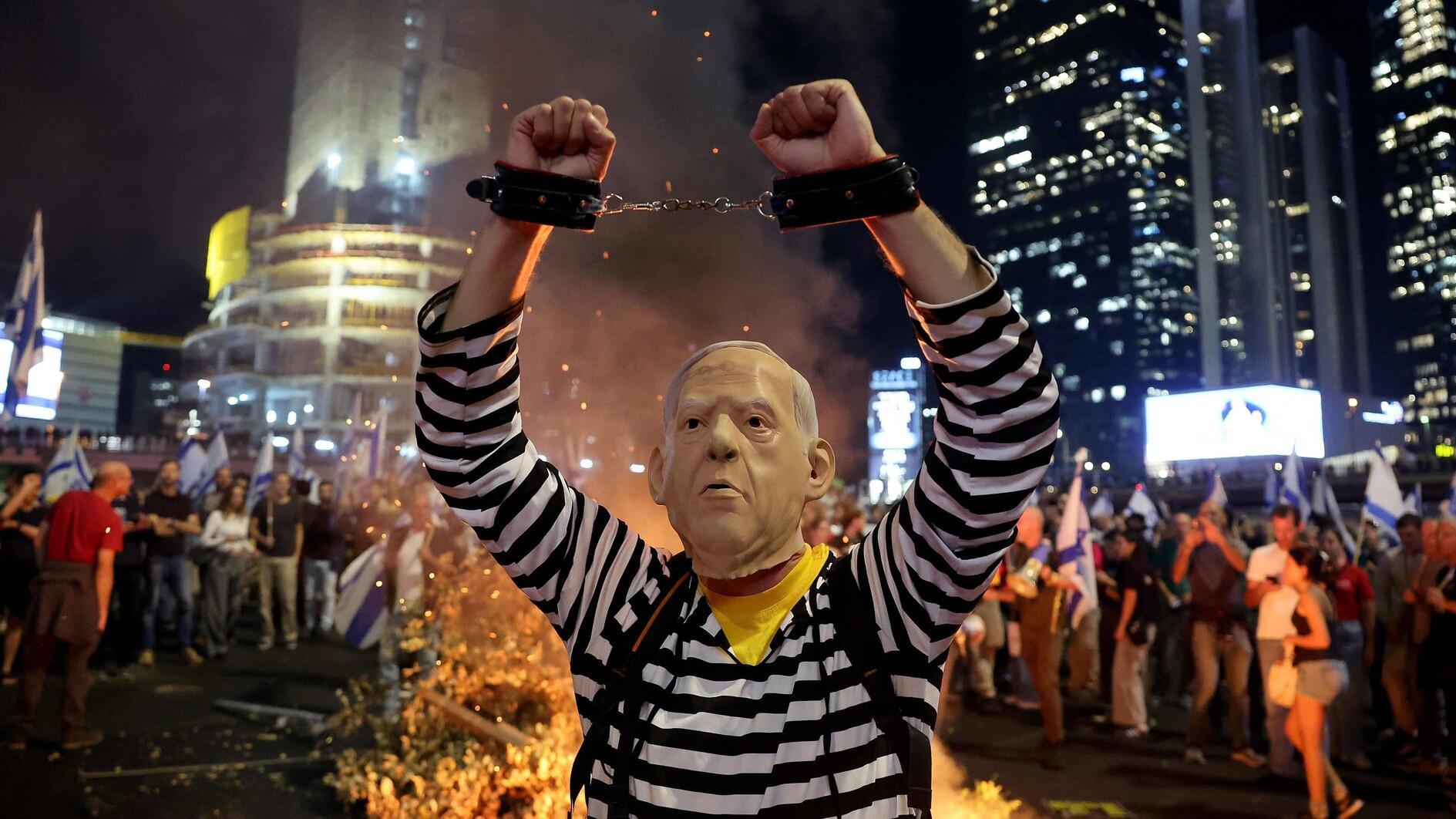
Israeli Prime Minister Benjamin Netanyahu's dismissal of his defense minister amid its war in the Gaza Strip has sparked a torrent of backlash, reverberating through government circles and igniting public outrage in the streets.
The demonstration erupted soon after Netanyahu's Office late on Nov. 5 announced the sacking of Yoav Gallant, a hawk on the war Hezbollah in Lebanon who also pushed for a ceasefire and hostage release deal in Gaza, following public differences over the wars.
"Over the past few months... trust has eroded. In light of this, I decided today to end the term of the defense minister," Netanyahu's office said, adding that Foreign Minister Israel Katz would take his place.
Shortly afterwards, thousands of people took to the streets of commercial hub Tel Aviv, chanting slogans against Netanyahu and demanding the return of 97 hostages.
Protesters blocked traffic and lit fires, with some wearing "Bring them home now!" T-shirts referring to the hostages.
They held up signs with slogans such as "We deserve better leaders" and "Leaving no one behind!” and one protester wore handcuffs and a face mask with Netanyahu's likeness.
Gideon Saar, a minister without portfolio, was appointed to replace Katz as foreign minister.
Gallant reveals three main reasons for his dismissal
After being fired, Gallant posted on X that Israel's security would remain his life's "mission.”
Gallant attributed his dismissal to three core policy disputes with Netanyahu.
The first centered on Gallant's unwavering conviction that military service should be a universal obligation, citing the ongoing conflict's heavy toll on Israeli soldiers, men and women alike.
He criticized the exemption of ultra-Orthodox Jews from conscription, labeling it “discriminatory and flawed.”
Gallant disclosed that a second source of tension lay in his commitment to the swift repatriation of Israeli captives held in Gaza, emphasizing that their return, “even if it requires painful concessions,” should be prioritized.
The third point of contention, Gallant noted, pertained to his insistence on establishing a formal investigative committee into the military and intelligence lapses of Hamas’ attack last year, which ignited the war in the Palestinian territory.
In his statement, Gallant called on the government to bring home the hostages in Gaza while they were "still alive.”
Several Israeli politicians expressed strong disapproval of Netanyahu's decision to dismiss a defense chief they regarded as a more reasonable and pragmatic figure, with the country's president issuing a warning amid the uproar.
"The last thing the State of Israel needs right now is an upheaval and a rupture in the middle of the war. The security of the State of Israel must be above all considerations," Isaac Herzog said in a statement.
Meanwhile, far-right politicians welcomed the minister's removal. National Security Minister Itamar Ben Gvir praised the decision, saying "absolute victory" in the country's ongoing wars was not possible under Gallant.
However, the United States praised the sacked minister as “an important partner on all matters related to the defense of Israel.”
New defense chief Katz known for abrasive style, fight with UN
After Gallant's dismissal, the Hostages and Missing Families Forum campaign group urged Katz "to prioritize a hostage deal... to secure the immediate release of all hostages.”
New defense chief Katz, known for his abrasive style, is a long-time ally and loyalist of Netanyahu.
As foreign minister, Katz drew international attention for his pointed attacks on world leaders and international organizations that had expressed opposition to Israeli military actions.
He spearheaded a diplomatic battle against the United Nations agency for Palestinian refugees, UNRWA, and last month Israel's parliament banned the agency from working in Israel and occupied east Jerusalem.
Last month Katz triggered outrage when he declared U.N. chief Antonio Guterres "persona non grata in Israel.”